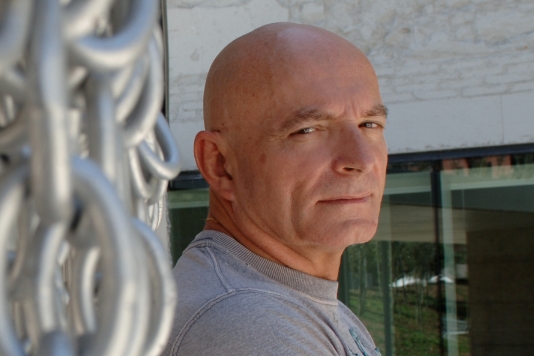07.03.2014 - 08:33
The conflict in Ukraine and Crimea, with the involvement of Russia, the European Union and the United States, has occupied the front pages of the newspapers these past few days. VilaWeb spoke with Llibert Ferri, an expert in the politics and history of the region, and who was a special correspondent for TV3 in Eastern Europe and in the USSR between 1987 and 2007.
Here is an excerpt of the full interview in Catalan for English readers.
The Maidan revolt has been tarnished by the participation of fascist Ukrainians.
There have been fascists present in this mobilization from the start. They were there in the Orange Revolution as well. And they were there in 1941 when the Nazi army came in, which found a destroyed society that had just gotten free from the grasp of stalinism. We have to realize that after the Second World War, the Soviets tortured the population, they deported them, they mistreated them, and there remains a grain of reactionaryism that comes out and shows its face from time to time. That’s old news. But to say that Maidan is controlled by these people is a big lie.
Who controls Maidan?
The movement is formed mostly by grassroots organizations and citizens of Ukraine society who want to live better once and for all. They want to live in a normal country that has never been normal. Here in the West, there is a certain kind of leftism—that delights in the maneuvers with Iran and with Maduro’s speeches in Venezuela—that thinks that this geostrategic struggle with the establishment of a multipolarity that strengthens Putin can be beneficial for the cause of the international proletariat. Well… From there, there has been obvious spin about the real meaning of the Maidan revolt.
Is there real danger of an armed conflict because of Ukraine and Crimea?
No. I don’t see it. Sincerely, watching the diplomatic moves of the last few days, I think it won’t end up in an armed conflict. I hope I’m not wrong, but I don’t think it’s going to go that far. Putin could decide to occupy Crimea and the Russian-speaking territory of Ukraine, but note that they’ve already created the legal cover of a referendum on March 16. In practice, Crimea never stopped being Russian. It was a gift from Khrushchev to Ukraine in 1954 as a kind of compensation to the motherland for all the trouble and hard life tht they had suffered. In Crimea there have always been Russian troops as if it were a protectorate. What Putin has done is demonstrate that it was already his and in this way, save face after the Maidan revolt and the fall of his man in Ukraine, Viktor Yanukovych. In all these movements, I don’t see any preparation for war.
Can Ukraine do anything to avoid the referendum and Crimea’s return to Russia?
Ukraine can’t do a thing. It will have to swallow the issue of Crimea. That is a done deal. The US knows it, the EU, NATO and OSCE know it. The UN Security Council knows it. That the Crimea referendum and Ukraine’s division are inevitable is known by everybody. Putin knows that it’s his way of demonstrating that Russia is still powerful. The only thing that Putin has left is the idea of empire; because he has lost the feeling of the people and the Russian middle class no longer supports him.
And Putin won’t have more demands, in exchange for not intervening in Ukraine militarily?
Oh yes. Putin will demand Ukraine’s federalization, so that the Russian-speaking areas will be guaranteed a certain presence in the state governing bodies. And it will also demand that the NATO dividing line be drawn outside of Ukraine, at the border with Poland. That is, that Ukraine ends up as neutral territory perhaps with some kind of commercial association pact with the EU but that will also have commercial and cultural agreements with the Russian motherland.
What consequences could this crisis have in the region? The president of Lithuania has issued warnings about Moldavia…
Undoubtedly, this episode will serve as a threat for Putin. The question of Moldavia has always been relegated to the back burner and the EU has not been capable of controlling it. That all forms part of the group of pending issues in Eastern Europe that Brussels doesn’t know how to handle. Moldavia has gotten away from them. The EU has set aside a whole group of potential conflicts and has dedicated all its efforts to all this austerity stuff and the necessary exit from the financial crisis. In fact, Ukraine got away from them already with Yanukovich and the association agreement.
Does the issue of Crimea endanger Catalonia’s independence process?
These two cases are not at all similar. It’s true that the Spanish government has rushed to defend the territorial integrity of Ukraine and has wanted to impose this defense on the EU. Spain wants to be on Ukraine’s side on the issue of Crimea but Spain’s nationalism is really more in tune with Putin’s ethnic nationalism. I don’t see how this particular case can endanger Catalonia’s path to self-determination. We have a problem in that the EU is not on top of and doesn’t know how to understand what is going on in Eastern Europe, but it’s also not on top of the Catalan case. At this moment, the EU is closing its eyes because it finds the Catalan situation troublesome. At any rate, the referendum in Crimea cannot serve as a guide because it won’t be held in acceptable, legitimate conditions, nor with guaranteed democratic minimums.



